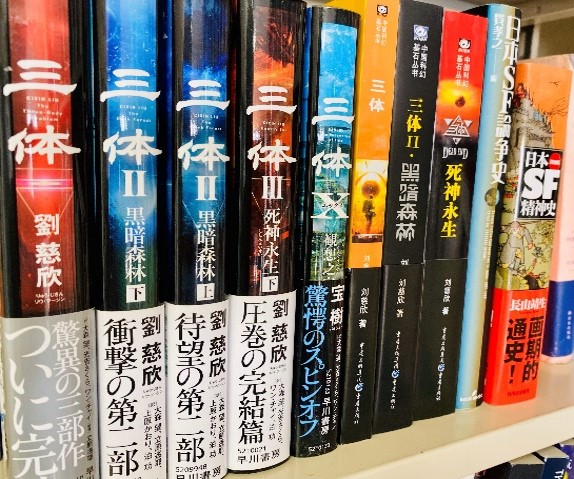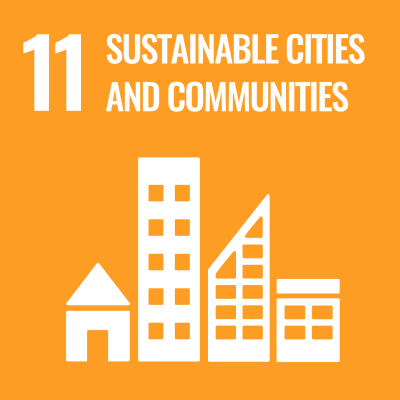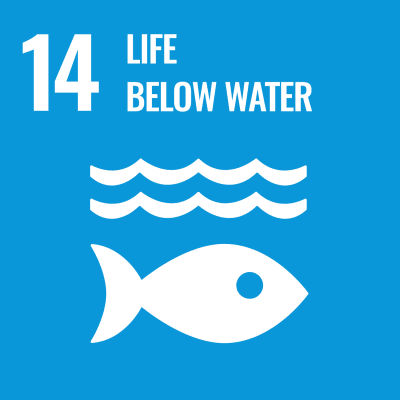-
Faculty of Science, Department of Applied Mathematics
- Professor
- Shintaro KUROKI
- Research Field
Transformation groups, Toric topology
- Keyword(s)
Group action, (Equivariant) Cohomology, Graph
- Research theme
-
- Cohomological rigidity problem
- Application of GKM theory to geometry
- Classification problem of the spaces with group actions, etc.
Outline of research activities





In the word of mathematics, the symmetric structures on spaces are described by groups.
We call such symmetric space a space with group action.
My research interest lies in geometry and topology of the spaces with torus actions.
In this decades, the area so-called toric topology has been emerged.
Roughly speaking, toric topology can construct bridges among different areas (geometry, algebra and combinatorics) by the study of the spaces with torus actions.
In the near future, I would like to continue to study toric topology more deeply and challenge to solve open problems.
- Desired cooperation
-
-
Faculty of Science, Department of Applied Mathematics
- Professor
- Shinzo BANNAI
- Research Field
Algebraic Geometry
- Keyword(s)
Algebraic Curves, Surfaces, Galois Covers, Gröebner Bases
- Research theme
-
- Classification of the embedded topology of plane curves
- Geometric inverse Galois problem and its applications
- Computational aspects of Algebraic Geometry
Outline of research activities


Algebraic Geometry is a field in mathematics that studies geometric objects defined by polynomials. Since polynomials are used in the definition, algebraic methods can be used to study the geometry.
The main objects that I am interested in are rlow dimensional objects such as algebraic curves and surfaces. I try to find “invariants” that can be used to distinguish similar curves, thnik of the “exsitence problem” which asks wheter curves satisfying given conditions exist, and once we know the existance, considr the “construction problem” in which the goal is to explicitely write down the equation. Since explicit equations appear, I sometimes use computers in order to execute my calculations.- Desired cooperation
-
- -
-
Faculty of Science, Department of Applied Mathematics
- Associate professor
- Kimiko YAMADA
- Research Field
Moduli spaces in algebraic geometry
- Keyword(s)
moduli, birational geometry, singularities, Kodaira dimension
- Research theme
-
- moduli spaces of vector bundles on algebraic surfaces
- singularities of moduli
- Kodaira dimension of moduli
Outline of research activities



My field of expertise is algebraic geometry. There we consider a set of zero points (algebraic variety) of polynomials. For example, lines, circles, hyperbolas, and parabolas are algebraic varieties. The set of all geometric objects with certain properties is called a moduli space.
Moduli spaces of stable vector bundles on complex algebraic surfaces X are actively investigated as concrete examples of algebraic varieties.For an algebraic variety M, the Kodaira dimension is determined.
The Kodaira dimension of M is an important invariant related to the curvature of M. Also, there is the minimal model theory to understand higher dimensional varieties. In this theory, one simplifies a variety by exploding and contracting its subspaces to get a simple variety, called minimal model.I am interested in singularities, the Kodaira dimenson and the minimal model program of moduli space M.
(1) For large classes of surfaces X, I described the minimal model program of M by using words of moduli theory.
(2) I examined singularities of M, and in case where the structure of X is relatively simple, I showed that singularities of M are “good”. As a result, I calculated the Kodaira dimension of M.- Desired cooperation
-
-
Faculty of Biosphere - Geosphere Science, Department of Biosphere - Geosphere Science
- Associate professor
- Mitsuhiko HONDA
- Research Field
Observational Astronomy, Planet Formation
- Keyword(s)
Protoplanetary disk, Instrument development
- Research theme
-
- Observation of protoplanetary disk
- Observation of Solar system minor bodies (comets)
- Development of new astronomical instrument and method
Outline of research activities


How the earth and planets are formed ?
I’m trying to answer this question by observing protoplanetary disks, which is the on-going planet forming site around young stars. Current large telescopes such as Subaru telescope allow us to reaveal the detailed signature of the planet formation process in the protoplanetary disks.
In addition, I’m also involved with the new development of the astronomical instrument and methed.
(Left) Artist’s illustration of the protoplanetary disk around HD142527 star
(Right) Detection of olivine and pyroxene crystals around Hen3-600A star- Desired cooperation
-
- Research on planet formation
- Research on Solar system minor bodies
- Development of new astronomical instrument and method
-
Faculty of Education, Department of Secondary Education
- Professor
- Junichiro TAKENO
- Research Field
English Language Education
- Keyword(s)
Listening, World Englishes, English Teaching Method
- Research theme
-
- Listening research focusing on rehearsal speed
- Examination of the authentic use of English worldwide
- Research on the relationship between reading and listening comprehension
Outline of research activities


I am interested in English education in general, and I have conducted listening research focusing mainly on rehearsal speed and processing speed. I am examining the authentic use of English in countries and regions around the world, using research on World Englishes.
I am also interested in research on the relationship between speed-reading and listening comprehension with an awareness of English word order.
Currently, I would like to conduct research on the changes in English education in elementary, junior high and senior high schools due to the revision of the Course of Study, and on how to personally and professonally develop future English teachers at universities.- Desired cooperation
-
- Listening research
- Research on the use of English in the world with research on World Englishes
- Research on English language education in general.
-
Faculty of Education, Department of Secondary Education
- Professor
- Kosuke FUKUSHIMA
- Research Field
Japanese language education
- Keyword(s)
Japanese Language Arts, Inquiry, IB, Theory of knowledge
- Research theme
-
- The somewhat vague and ambiguous field of Japanese language education
- International Baccalaureate Language A Japanese (Japanese A),
- Theory of Knowledge (TOK)
- Research on inquiry-based learning methods and their practical application
Outline of research activities



After graduating from graduate school, I have spent many years teaching Japanese language arts at middle and high schools. During my long tenure at a middle and high school affiliated with an international school, I have reflected on and implemented approaches related to the International Baccalaureate program, interdisciplinary learning, and inquiry-based education.
Rather than being a literature enthusiast, I became a Japanese language teacher because I enjoy analyzing and refining logical arguments. My goal is to develop a systematic approach to helping students master Japanese as a language and to theorize the educational practices I implement in the classroom.
Think, Don’t Feel.
It is like a finger pointing away at the moon. Don’t concentrate on the finger, or you will miss all that heavenly glory.- Desired cooperation
-
- Research on lessons incorporating elements of the International Baccalaureate at Ichijo School
- Research on exploratory and conceptual lessons in
- Japanese language classes
-
Faculty of Education, Department of Secondary Education
- Professor
- Shammi DATTA
- Research Field
Teacher Education, IB、Japan Studies (History, Cutlure and Regional Revitalization)
- Keyword(s)
Proactive Learning, Inquiry, IB, Regional Revitalization, Animism
- Research theme
-
- Global standards inquiry based teaching and learning, and IB education in Japan and India
- Regional revitalization
- Animism in Shinto and Hinduism
Outline of research activities


How can teachers motivate learners towards meaningful inquiry and research based learning? Should teachers teach, facilitate, or both? How can interactive, proactive student co-ownership of learning and assessment be realized? These are my primary inquiry questions in the field of teacher education.
My primary inquiry interests in Japan Studies and social studies education are as below: How do local policy and business models come together to bring about regional revitalization? How can we implement case studies in this area in secondary school education, and Japan Studies education?
Analysis of animism in Shinto, Hinduism.and Japanese Buddhism.- Desired cooperation
-
- Inquiry based, global standards, differentiated teaching and learning
- IB education in Japan and India
- Analyzing regional revitalization from the point of view of “successful” business models
-
Faculty of Management, Department of Management
- Professor
- Ichiro YAGI
- Research Field
Media and public opinion
- Keyword(s)
The will of the people a public opinion poll
- Research theme
-
- How has the will of the people been formed?
Outline of research activities
Public opinion is key word in mass media.Because this word is often used.But how the public opinion been formed? A gap between politics and public opinion is very important issue.How has mass media reflected the will of the people? The spread of the Internet has changed our lives. We study about new information age.

- Desired cooperation
-
- The election and the public opinionl
-
Faculty of Veterinary Medicine, Department of Veterinary Associated Science
- Professor
- Takehisa WATANABE
- Research Field
International Law, Education Law, Animal Law
- Keyword(s)
State Jurisdiction, Extraterritoriality, School Crisis Management, Informed Consent in Veterinary Medicine
- Research theme
-
- State Jurisdiction Theory in Internet
- School Crisis Management against Natural Disasters
- Informed Consent in Veterinary Medicine
Outline of research activities

I am researching standards for exercising state jurisdiction in Internet. I am also researching ways to protect students from natural disasters. In addition, I am conducting a legal analysis of informed consent in veterinary medicine.
- Desired cooperation
-
- Development of disaster prevention system in school.
-
Institute for the Advancement of Higher Education, Center for Fundamental Education
- Associate professor
- Linglin YANG
- Research Field
Modern and Contemporary Chinese Literature Chinese Science Fiction
- Keyword(s)
Chinese Literature,Shen Congwen,Chinese Science Fiction
- Research theme
-
- Utopia in Sinophone Science Fiction
- Aspects and Transformations of Literary Ideals in Modern and Contemporary Chinese Literature
- A Research on the Possibilities of Incorporating Literary Approaches in Chinese Language Education
Outline of research activities



My field of expertise is modern and contemporary Chinese literature, with a current focus on science fiction (SF) literature in the Chinese-speaking world. SF literature is often perceived as a product of imagination detached from reality, but in reality, it contains deep connections with society and often functions as a critical reflection of it. In my research, I place more emphasis on the ‘S’ (Science/Society) aspect, that is, the scientific and social imagination, rather than the ‘F’ (Fiction) aspect in SF works.
The main focus of my current research is the representation of utopias and dystopias in SF literature from mainland China, Taiwan, and Hong Kong. The genre of SF, while inheriting the lineage of utopian literature, presents various concepts of future societies against the backdrop of rapid scientific and technological advancements and social changes since modern times.
The imagined societies constructed in these works are not merely fantasies; they often contain critiques of dystopian realities in the present world and aspirations toward alternative social orders. Therefore, through Chinese-language SF literature, my research aims to explore the critical imagination of the challenges faced by contemporary society and the possibilities of human society in the future. This is the core of my research.

- Desired cooperation
-
- Comparative Literary Study of East Asian Literature (Especially SF and Utopian Literature)
- Research on Modern and Contemporary Chinese Intellectual History and Social Thought
- Practical Research on Chinese Language Education and Intercultural Understanding Education Using Literary Works
-
Institute for the Advancement of Higher Education , Center for Fundamental Education
- Associate professor
- Miho HAYASHI
- Research Field
Modern Japanese history, environmental education, archival studies
- Keyword(s)
Pollution museum, collaboration, ESD, public history, modern family
- Research theme
-
- Inheriting a difficult past
- Regeneration of polluted areas
- Pollution museum network
Outline of research activities




The difficult past was a catastrophic event that led to “mass death,” and the damage was felt not only by the dead but also by the survivors. This applies to wars, pollution damage, isolation policies for Hansen’s disease, pollution damage, etc. Furthermore, because such damage involves a complex relationship between perpetrators and victims, the “interpretation = meaning” of the event is likely to be divided depending on one’s position, making it difficult to pass on experiences. Based on the concepts of collaboration and ESD, I create spaces for dialogue, practice public history, and deepen my research on the inheritance of difficult past experiences.
- Desired cooperation
-
- Partnership for ESD and SDGs
- Passing down pollution experiences and tourism
-
Institute for the Advancement of Higher Education , Center for Fundamental Education
- Lecturer
- Kazuki NOMAKAWAUCHI
- Research Field
Leadership Education, Accompanied Independence Support
- Keyword(s)
Leadership, Followership, Student Support, Goal Achievement
- Research theme
-
- Leadership education with followership education
- Leadership with followers in mind
- Support for self-reliance through accompaniment, etc.
Outline of research activities



In the future society, collaboration between leaders and followers is important.
Therefore, it is important that leaders also learn about followers and learn about followership.
The human resources that companies look for in new hires will include an element of followership.
Mastery of leadership requires that you make your own changes in your own behavior.
It is necessary to look back at one’s own behavior, notice unconscious comments and actions, and change oneself.
We are currently conducting research on building relationships with others, developing oneself, and becoming self-reliant through leadership education.- Desired cooperation
-
- Career Support
- Career education
- Research on personal growth, etc.
-
Institute for the Advancement of Higher Education, Center for Fundamental Education
- Lecturer
- Ken-ichi NISHIKAWA
- Research Field
English Language Education, Second Language Acquisition, Learning Support
- Keyword(s)
SLA, EAP/ESP, Foreign Language Learning/Teaching, Motivation, student-oriented
- Research theme
-
- Enhancing reading skills
- Effective use of media such as music in language classroom
- Foreign language education in the univerity program
- Student-oriented English Language Education
Outline of research activities



I have wide experience in teaching English in several types of schools such as junior high and high schools, including a correspondence course high school, and a university. So, in the field of English Language Education, I am interested in how to improve English language skills of EFL learners at each stage of language learning and lead them to be self-disciplined learners from the viewpoint of SLA.
In one case, learners at the higher education, e.g. university students, are required to read several literatures in order to gather information or knowledge on their interest. Some literatures may be written in Japanese, but in most cases, they are written in other languages, including English. I am investigating some possible aspects related to their effective reading, such as formal instruction, vocabulary building, background knowledge etc., and would like to identify aspects effective to reading for information gathering. These aspects may vary according to learner characteristics. In another case, I am performing studies of effective use of media such as music and movie in the language classroom.
Moreover, I would like to investigate the potentiality of BASIC English, which was “discovered” by Charles Kay Ogden, and develop educational materials for EFL/ESL Learners based on Ogden’s idea shown in BASIC English. BASIC English is a simplified and organized English brought up by Charles Kay Ogden as an international auxiliary language, and as an aid for teaching English as a second language. I think his idea is still very significant even today.- Desired cooperation
-
- Active Reading
- Effective use of media such as music in language classroom
- Cases of organization of learning(or study) support in the university
-
Student Support Division, Global Center
- Lecturer
- Mitsuhiro KIMURA
- Research Field
Mathematics Education, Educational Sociology
- Keyword(s)
Mathematics Education, Educational Sociology
- Research theme
-
- Learning Mathematics in Students Second Language
- Effects of ICT in Highschool classroom
- IB (International Baccalaureate) teacher's regognition
Outline of research activities

I am currently conducting research on the effects of the International Baccalaureate (IB) education that is spreading in Japan.
1. I am conducting research on the effects and challenges of the IB in the context of the increasing number of high schools where students are learning mathematics in English.
2. I am conducting research on the effects and challenges of ICT utilization, which is emphasized in the IB.
3. I am conducting research on how high school teachers will change as a result of the implementation of the IB.
We are interested in how to apply the suggestions obtained from the implementation of the IB to schools in general.
- Desired cooperation
-
- Research on cross-curricular learning
- Research on inquiry-based learning
- International volunteer work, etc.
-
Student Support Division, Information Infrastructure Center
- Professor
- Yutaka HIRATA
- Research Field
Information security, ICT-based public safety and disaster prevention
- Keyword(s)
Crime, investigation, police, disaster prevention, information security measures, information systems
- Research theme
-
- Investigative methods and arrest measures based on the prediction of criminal behavior
- Optimize patrols and personnel to deter crime
- Optimization of evacuation behavior in the event of a disaster
Outline of research activities

In these days of drastic social change, it is difficult to predict how the future will unfold. Crime is also facing an endless number of unique crimes of lone offenders, as seen in the murder of former Prime Minister Abe, the extended suicide case in Kyoto Animation, and the murders that occur in closed rooms on trains. Such crimes cause anxiety among the public and have a significant impact on safety and security, which is the foundation of society. Given the limitations of the limited human resources of the police, we are researching efficient police activities and new investigation methods utilizing ICT, as well as crime prediction through crime occurrence analysis.
In addition, in order to protect the lives of citizens who are extremely difficult to rescue by self-help and mutual aid in the event of a disaster such as a torrential downpour or a massive earthquake caused by global climate change, we are conducting research on how local governments, self-defense forces, fire departments, and police can act to protect citizens by utilizing ICT technology to gather information on their daily living conditions. We are also conducting research on how local governments, the Self-Defense Forces, fire departments, and police can act to protect the public.
- Desired cooperation
-
- System development through the use of WIFI and Bluetooth BSSDID radio waves
- Research on AI technology using various social events as training data
- Evacuation behavior based on residents' data during disasters
-
Organization for Research and Community Collaboration, Research Center for Architectural history and culture
- Professor
- Tsuguto EZURA
- Research Field
History of Japanese Architecture, Prervation and Repair of Cultural Assets, Preservaation of Historic Districts
- Keyword(s)
Historic district and cultural landscape conservation, World Heritage, Ecomuseum
- Research theme
-
- Study on the early modern to modern temples and shrines and residential architectures
- Study on historic districts and villages (Entrusted researches by municipalities)
- Study on securing engineers and materials for repairing architectures of cultural assets
- Study of residential architectures overseas
Outline of research activities



In order to revitalize the rcommunities, many municipalities with declining populations are making efforts to utilize the “history” and “culture” of the region for community development and tourism. However, first of all, it is necessary to academically clarify what are the characteristics of history and culture of the region, and to think of effective ways to use them. The center conducts measurement surveys of historical buildings and townscapes to study the value of cultural assets and methods of utilization, and reports and makes proposals to prefectures and municipalities. We are also promoting research on the utilization of cultural assets at an academic level with the aim of contributing to the local communities, we are training and educating human resources with the ability of “cultural thinking ability” which means to see and think about things from a new point of view with understanding of coexistance and interdependency included in the concept of culture based on the understanding of what is culture. Overseas, we are transferring this technology and training engineers in the Philippines, Bhutan, Fiji, etc., making use of our original restoration method based on surveys of traces.

- Desired cooperation
-
- Survey Commission for Designation and Registration of Historic Buildings
- Technical guidance and general supervision in cultural asset buildings' repair work
- Consignment of townscape preservation surveys and explanations to local residents
- Training project related to protection of cultural properties, etc.
-
Institute for the Advancement of Higher Education,
- Professor
- Yoko HASEBE
- Research Field
Educqtion, Socilology, Psyco-sociology
- Keyword(s)
Educqtion, Inter-linguistic & cultural communication, Social transformation, Agriculture and food culture,
- Research theme
-
- interlinguistic and intercultural communication based on the field of education, and its curriculum design and teaching methods
- Social transformation based on the field of education
- Sustainable collaboration model: among public sectors, private sectors, local communities, universities.
Outline of research activities









Specializes in education through teaching materials, methods, curriculum design, teachers’ training for inter-linguistic and intercultural communication based on social psychology. In 2007, started “Primary School Project” in Democratic Republic of Congo through intercultural collaboration, has continuously introduced how to create an atmosphere for “mutual collaboration” and “sustainable relationship” with the local community, and is always working with young researchers on the fieldwork-based approach in exploring how to interpret social and cultural phenomena in local communities to develop a model school for the area. We have other related projects in Kagoshima, Yamaguchi, Nagano, Kanagawa, Akita, Aomori.
As my specialty is interlinguistic and intercultural communication based on education, and I am researching its curriculum design and teaching methods. Generally, when we think about intercultural communication, it is exchange with foreign countries that comes to mind. However, even when we are talking with Japanese people, a word can often be interpreted completely differently by the other person, due to individual understandings of the image evoked by that particular word that arises from our diverse backgrounds. Nevertheless, there is the mistaken impression that sharing a language or an interpretation equals understanding, and major communication gaps can arise before we know it.
What is more, my special field of research is the creation of environments for interlinguistic and intercultural communication that generate these kinds of “discoveries.” What steps are required, what kind of settings do we need to create, and what kind of program do we need to assemble? This involves developing a curriculum design, creating an environment that generates sustainable shared understandings as quickly and naturally as possible, and coming up with the methodology to teach the required content and language, for example. We are undertaking this research by putting these concepts into practice through specific projects.- Desired cooperation
-
- Researches on collaboration of education x local community x city design x agriculture and food
- Researches on activating public educational system
- Researches on the process of collaboration between local community and university







